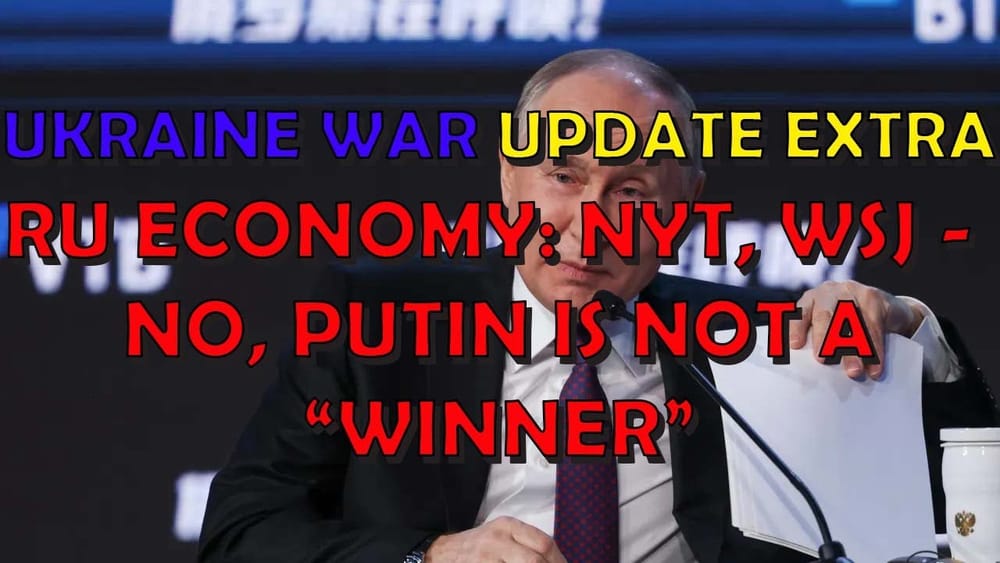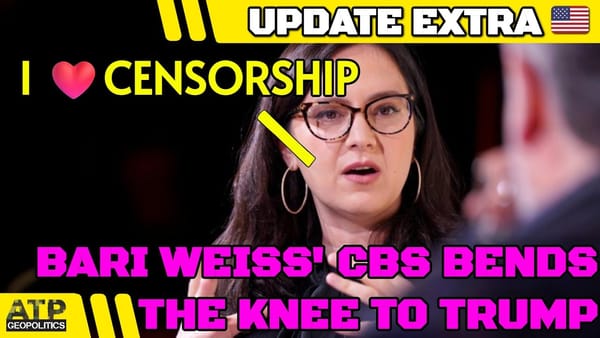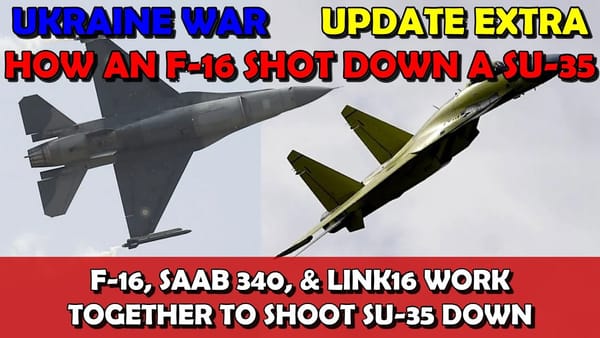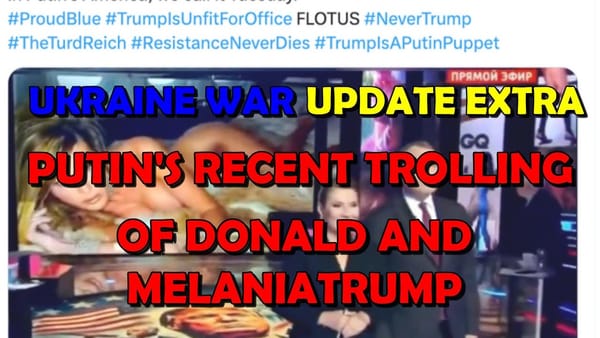Ukraine War Upd. EXTRA: Russian Economy - Putin Is Not a Winner
Table of Contents 📖
"Putin is geopolitical man of the year, I think it would be far more accurate to write an article on how Putin is just, I don't know, dickwad of the year or something. Because, sorry to be pure eye, but like, you know, that's far more accurate."
Hello Team
🎦 00:00-00:16⏩
Jonathan welcomes viewers to an "extra" video focusing on the Russian economy, promising "tidbits and nuggets" to enhance understanding of the war's impact.
Return to top⤴️
New York Times article: "How Putin Turned a Western Boycott into a Bonanza"
🎦 00:16-05:11⏩
Jonathan critiques a New York Times article suggesting Putin benefitted from Western companies leaving Russia, arguing the article lacks context. He highlights the Yale School of Management's (particularly Jeffrey Sonnenfeld) counter-arguments, emphasizing that most companies have left or reduced operations. He points out that while the article suggests companies leaving benefitted the Russian government, it fails to acknowledge the overall economic damage and devaluation of assets. Jonathan believes that the focus on the cost incurred by companies exiting Russia paints a one-sided picture and that the article relies heavily on Kremlin propaganda and quotes from Putin, Peskov, and Medvedev, undermining its credibility.
Return to top⤴️
Wall Street Journal Opinion Piece: "The Winners of the Year are Putin, Musk and the US Economy"
🎦 05:11-08:29⏩
Jonathan discusses a Wall Street Journal opinion piece that controversially names Putin as one of the year's geopolitical winners. He notes the author's acknowledgment that this is a contentious claim given the damage inflicted by the war on Ukraine. The piece argues that despite the war's ongoing toll, Putin's position has strengthened, European resolve is waning, and American support is fracturing. Jonathan highlights the author's assertion that Putin's economy has withstood Western sanctions and that his "strategic patience" has proven advantageous.
Return to top⤴️
Yale School of Management Rebuttal: "Parroting Putin’s Propaganda: The Business Exodus over Ukraine Was No Russian Bonanza”
🎦 08:29-17:40⏩
Jonathan analyses a Fortune article by Jeffrey Sonnenfeld, Timothy Milovanov (Kyiv School of Economics), Natalia Chapaval, and Steven Tian, refuting the notion that the business exodus benefitted Putin. The authors, all sanctioned by Russia, argue their presence on the sanctions list demonstrates the Kremlin's concern over their accurate portrayal of Russia's economic struggles. They criticise the New York Times for uncritically quoting Kremlin officials like Peskov and using their statements as evidence. They assert that the article ignores the fact that companies leaving Russia actually outperformed those that stayed, citing market data analysis. The authors highlight the financial and reputational benefits gained by companies that left, contrasting this with the plummeting valuations of Russian assets, further undermining the "Putin benefitted" narrative. Jonathan explains how forcing companies to sell assets at a 50% markdown isn't a good deal when all Russian asset values have plummeted, likening it to celebrating a 50% discount on a can of beer when all beer prices dropped by 50%. He stresses the importance of context in assessing the situation.
Return to top⤴️
Foreign Policy Article: Seven Ways the Exodus of Western Companies has Cratered the Russian Economy
🎦 17:40-34:29⏩
Jonathan delves into a Foreign Policy article by Sonnenfeld and Tian, offering a direct rebuttal to the Wall Street Journal's claim of Putin being a winner. He encourages viewers to watch Joe Bloggs's video for a detailed breakdown of the article. He outlines the seven ways Western companies leaving Russia has damaged its economy:
- Talent Flight: An estimated 1 million highly skilled workers (10% of Russia's tech workforce) have fled since the invasion.
- Capital Flight: A record $253 billion in private capital was withdrawn between February 2022 and June 2023, with Russia losing 33% of its millionaires.
- Loss of Western Technology and Know-How: This has significantly impacted key industries like technology and energy. Rosneft's capital expenditure has increased by nearly $10 billion, with each barrel of oil costing an additional $10 to produce due to the lack of Western expertise. Jonathan provides further context relating to the dependence on Western companies for oil and gas extraction and how, without them, Russia has been unable to maintain production levels.
- Near-Total Halt in Foreign Direct Investment: FDI has ceased, with only one month of positive inflow in the 22 months since the invasion, compared to $100 billion annually pre-war.
- Loss of the Ruble as a Freely Convertible Currency: Putin's strict capital controls, like limiting dollar withdrawals, forcing exporters to exchange earnings for rubles, and suspending dollar lending, have rendered the ruble near worthless in global markets. This has restricted their ability to use their own currency forcing them to accept payment for oil in Rupees and Yuan. Jonathan uses this as an opportunity to explain the importance of the US dollar in global trade.
- Loss of Access to Capital Markets: Russian companies cannot access Western capital markets, forcing them to rely on state-owned banks with interest rates at 16%. Jonathan explains how this will make it difficult to secure funding for large scale projects going forward.
- Destruction of Wealth and Plummeting Asset Valuations: Asset values have plummeted, with state-owned enterprises down 75% and private sector assets down 50%.
Jonathan concludes that Russia's economy is in dire straits, facing soaring costs, declining incomes, and a bleak outlook for 2024. He argues that the country's ability to function is propped up by its war footing, which is unsustainable in the long run. He believes that Russia's economic woes will lead to domestic discontent and questions the sustainability of Putin's regime.
Return to top⤴️
Jonathan's Final Thoughts
🎦 34:29-40:39⏩
Jonathan questions the "Putin as geopolitical winner" narrative, suggesting "dickwad of the year" is a more fitting title given the immense cost of the war to Russia and its people. He criticises the Wall Street Journal article for its distorted portrayal of Putin's position, arguing that the focus on authoritarian control as a metric for geopolitical success is flawed. He expresses concern that celebrating such control essentially equates to celebrating dictatorships.
Return to top⤴️
Wrap Up
🎦 40:39-40:39⏩
Jonathan thanks viewers for their support, encourages likes, subscriptions, and shares. He expresses his appreciation for the opportunity to delve deeper into the topic and invites viewers to share their thoughts and expertise.
Return to top⤴️



